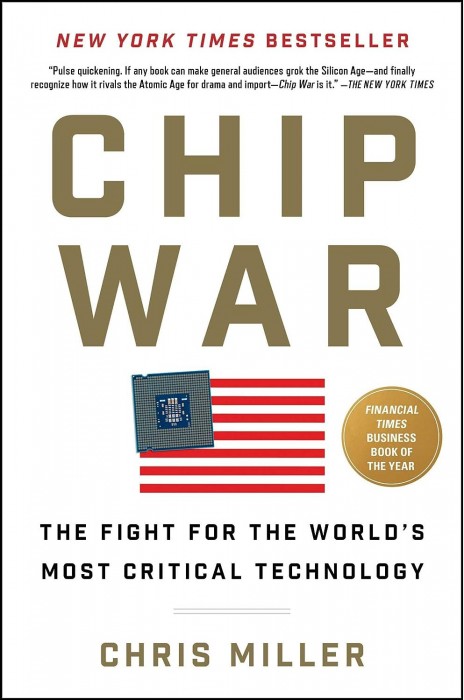Folks,
It gives me pause to think that I have lived through most of the electronics revolution. One of my first memories is that my family, along with most others, did not own a television. When we got one, it was a 21 inch black and white TV and it cost$250 (about $2,000 in today’s dollars.) It employed vacuum tubes. We didn’t get a color set until I graduated from college. And, it still had vacuum tubes.
I remember the first transistor radios playing that classic tune “Transistor Sister.” My first component stereo system used an early integrated circuit. And so it went through 8 tracktapes, cassettes, VCRs, CDs, DVDs, mobile phones, and up to today's smartphones, AppleWatch, and the like:all powered by transistors,and then integrated circuits.
So, with this as a background, I was interested to listen to the audio tape(my 30 minute commute to Dartmouth College is a great venue for audio books!)of Chris Miller’s book Chip War.

Miller’s review of the history of electronics took me down memory’s lane, but his most important contribution is analyzing the importance of integrated circuits today. Amazon’s summary is tough to improve on:
“You may be surprised to learn that microchips are the new oil—the scarce resource on which the modern world depends. Today, military, economic, and geopolitical power are built on a foundation of computer chips. Virtuallyeverything—from missiles to microwaves, smartphones to the stock market—runs on chips. Until recently, America designed and built the fastest chips and maintained its lead as the #1 superpower. Now, America's edge isslipping, undermined by competitors in Taiwan, Korea,Europe, and, above all, China. Today, asChip Warreveals, China, which spends more money each year importing chips than it spends importing oil,is pouring billions into a chip-building initiative to catch up to the US. At stake is America's military superiority and economic prosperity.
Economic historian Chris Miller explains how the semiconductor came to play a critical role in modern life and how the U.S. become dominant in chip design and manufacturing and applied this technology to military systems. America's victory in the Cold War and its global military dominance stems from its ability to harness computing power more effectively than any other power. But here, too, China is catching up, with its chip-building ambitions and military modernization going hand in hand.America has let key components of the chip-building process slip out of its grasp, contributing not only to a worldwide chip shortage but also a new Cold War with a superpower adversary that is desperate to bridge the gap.
Illuminating, timely, and fascinating,Chip Warshows that, to make sense of the current state of politics, economics, and technology, we must first understand the vital role played by chips.”
One of most startling challenges of being competitive in the semiconductor world is maintaining a competitive manufacturing capability. Miller points out that a new semiconductor fab can cost over $20 billion, as much as two aircraft carriers, and yet be state of the art for only a few years. Another interesting statistic, he states, is that "every day, more transistors are manufactured than there are cells in the human body."
I believe Chip Wars is a must read for those of us in the electronics industry.
Cheers,
Dr. Ron

